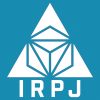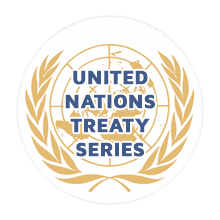Submissions for the journal are open
UNDERSTANDING THE JOURNAL’S PHILOSOPHY AND EMPHASIS
Authors should carefully read the “About the Journal” page to understand IRPJ’s philosophy and emphasis.
Our focus is research and analysis having implications for intergovernmental institutions, multileral agreements and global policy making. All submitted articles must include in the designated template section a list of related intergovernmental organizations (used as “tags”).
ADAPTING AND PREPARING AN ARTICLE
In most cases, authors will have to adapt their article to meet the requirements set forth herein and above, namely:
- use the approved IRPJ template
- specify in keywords the list of concerned IGOs, with format full name (acronym), as in United Nations (UN) or European Central Bank (ECB)
- clearly indicate the policy implications for IGOs in recommendations and/or conclusions.
OBTAINING AN ORCID
All authors need to provide their ORCID number. If you do not have one, please obtain one at:
UNDERSTANDING THE REVIEW PROCESS
IRPJ is a peer-reviewed journal managed by an editorial board.
- Peer review is the process by which journals scrutinize and regulate the quality of content they publish, by inviting experts in the field to review and comment on manuscripts received.
- Manuscripts submitted to a journal first go through an initial screening by the editorial team.
- Those that clear the screening are sent to at least two experts for peer review.
- Peer reviewers independently make a recommendation to the journal editor as to whether the manuscript should be rejected or accepted (with or without revisions).
- The journal editor considers all the feedback from peer reviewers and makes an informed decision to accept or reject the manuscript.

PLAGIARISM POLICY
The IRPJ editorial team uses a variety tools to verify the originality of submitted manuscripts. As part of this process, selected submitted manuscripts are scanned and compared with various databases. Plagiarism is when an author attempts to pass off someone else work as his or her own. Duplicate publication, sometimes called self-plagiarism, occurs when an author reuses substantial parts of his or her own published work without providing the appropriate references. This can range from getting an identical paper published in multiple journals, to so-called ‘salami-slicing,’ where authors add small amounts of new data to a previous paper.
PLAGIARISM PRIOR PUBLISHING: All manuscripts submitted for publication are checked for plagiarism after submission and before starting review. If plagiarism is detected by the editorial board member, reviewer, editor etc., in any stage of article process- before or after acceptance then we will alert the same to the author(s) and will ask them to rewrite the content or to cite the references from where the content has been taken. If more than 30% of the paper is plagiarized, the article will be rejected and the author notified.
Submissions in which plagiarism is detected are handled based on the extent of the plagiarism. >5% Plagiarism: The manuscript will be given an ID and the manuscript is sent to author for content revision. 5- 30% Plagiarism: The manuscript will not be given an ID and the manuscript is sent back to author for content revision. >30% Plagiarism: The manuscript will be rejected without the review. The authors are advised to revise the manuscript and resubmit the manuscript.
PLAGIARISM DETECTED AFTER PUBLICATION: If a case of plagiarism comes to light after a paper is published in the journal, the journal will conduct a preliminary investigation. If plagiarism is found, a determination of misconduct will lead the journal to run a statement, bidirectionally linked online to and from the original paper, to note the plagiarism and to provide a reference to the plagiarised material. The paper containing the plagiarism will also be obviously marked on each page of the PDF. Depending on the extent of the plagiarism, the paper may also be formally retracted.
ORIGINALITY: By submitting Author(s) manuscript to the journal it is understood that it is an original manuscript and is unpublished work and is not under consideration elsewhere. Plagiarism, including duplicate publication of the author’s own work, in whole or in part without proper citation is not tolerated by the journal. In the case of a publication being submitted that was originally published in another language, the title, date and journal of the original publication must be identified by the authors, and the copyright must be obtained. The editor may accept such a translated publication to bring it to the attention of a wider audience.
ACKNOWLEDGING AUTHOR(S) SOURCES: Self-plagiarism is a related issue. Self-plagiarism is the verbatim or near-verbatim reuse of significant portions of one’s own copyrighted work without citing the original source. Note that self-plagiarism does not apply to publications based on the author’s own previously copyrighted work (e.g., appearing in a conference proceedings) where an explicit reference is made to the prior publication. Such reuse does not require quotation marks to delineate the reused text but does require that the source be cited.
SUBMISSION AND PROCESSING FEES /CHARGES
Our publishing platform mandates a USD10 fee per submission.
In addition, IRPJ charges USD40 to cover operations expenses associated with editorial review, peer-review, publication, indexing and archiving.
If an article has publication potential but requires extensive editing, an editing service offer may be made.
FEE WAIVER POLICY
The publishing platform fee of USD10 cannot be waived.
The USD40 fee may be waived, upon request, by public researchers and Ph.D. students residing in one of the EUCLID Participating States.
COPYRIGHT CONSIDERATIONS AND LICENSING
At IRPJ, the entire content of all present and past journals is immediately and permanently accessible online free of charge and published under the CC-BY license, which permits unrestricted use, distribution, and reproduction in any medium, provided the original authors and the source are credited. The authors retain copyright ownership of the articles.
Authors publishing with IRPJ retain the copyright to their work, licensing it under the Creative Commons Attribution License which allows articles to be re-used and re-distributed without restriction, as long as the original work is correctly cited.
USEFUL RESOURCES FOR AUTHORS
IRPJ recommends the following resources:









